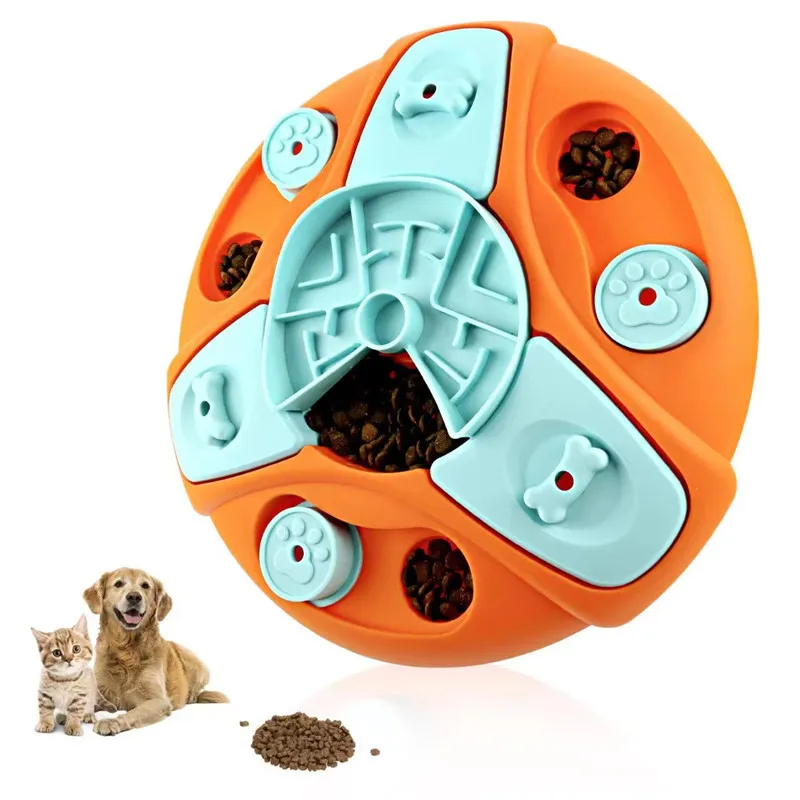The Importance of Pet Play Toys: How They Keep Your Furry Friend Healthy and Happy
2024-09-07
Pets bring joy, comfort, and companionship into our lives, and just like us, they need daily stimulation and exercise to stay happy and healthy. One of the best ways to provide this is through pet play toys. Whether you have a playful kitten, a curious dog, or even a small critter like a rabbit, toys are an essential part of their daily lives. In this blog, we’ll explore why pet play toys are more than just entertainment and how they contribute to the overall well-being of your furry friend.
1. Mental Stimulation
Just like humans, pets need mental challenges to keep their brains active and engaged. Pet play toys, especially puzzle toys and interactive toys, provide mental stimulation that helps prevent boredom. Boredom can lead to destructive behavior, such as chewing furniture or tearing up the house. Engaging toys that require problem-solving, like treat-dispensing balls or hide-and-seek puzzles, encourage your pet to think critically and stay mentally sharp.
- Examples of mentally stimulating toys: Puzzle feeders, interactive treat dispensers, squeaky toys.
2. Physical Exercise
Exercise is crucial for a pet’s physical health, and playtime is one of the easiest ways to ensure they get enough of it. For dogs, regular play sessions with fetch toys, tug ropes, or Frisbees help them burn off excess energy and maintain a healthy weight. Cats can benefit from chasing feather wands, laser pointers, or toy mice, which tap into their natural hunting instincts.
- Examples of exercise toys: Ball launchers for dogs, laser pointers for cats, running wheels for small pets.
3. Promoting Healthy Teeth and Gums
Chew toys, in particular, are not only fun for pets but also play an important role in maintaining dental health. For dogs, durable chew toys like rubber bones or dental chews help clean their teeth and reduce tartar buildup. Chewing also helps alleviate teething pain in puppies and provides a natural way for pets to relieve stress.
- Examples of dental toys: Rubber chew toys, dental bones, flavored chew sticks.

4. Building Bonds
Playtime with your pet is an excellent opportunity to strengthen the bond between you and your furry friend. Engaging in interactive games like tug-of-war or fetch can build trust and deepen your connection with your pet. It also helps them burn off energy while giving you both a chance to bond in a fun and loving way. Regular playtime reinforces your pet’s feeling of safety and affection, making them more well-adjusted and confident.
- Examples of bonding toys: Tug ropes, Frisbees, and plush toys for cuddling.
5. Relieving Stress and Anxiety
Pets can experience stress and anxiety just like humans, whether from changes in their environment, separation from their owners, or unfamiliar situations. Pet toys can provide comfort during these times, especially plush toys or toys designed for chewing, which help calm your pet and ease their anxiety. For cats, items like scratching posts or interactive toys offer an outlet for their stress and prevent unwanted behaviors like scratching furniture.
- Examples of calming toys: Plush toys for cuddling, calming chews, and slow-feeder toys for anxiety relief.
6. Encouraging Natural Behaviors
Different types of toys encourage pets to engage in their natural behaviors, such as hunting, chasing, chewing, or digging. For dogs, toys like digging mats or snuffle mats allow them to use their noses to find hidden treats, mimicking the foraging behavior they would use in the wild. Cats, on the other hand, benefit from toys that simulate hunting, like feather wands or toys that dart around erratically.
- Examples of natural behavior toys: Snuffle mats, feather toys for cats, foraging balls for small animals.
Conclusion
Pet play toys are essential to the physical and mental health of your furry companions. They keep pets entertained, prevent destructive behaviors, and improve their overall well-being. Whether it’s a game of fetch, a puzzle toy that challenges your pet’s mind, or a soft toy that provides comfort, the right play toys can make a huge difference in your pet’s quality of life. Remember, playtime isn’t just about keeping them busy – it’s a chance to bond, promote health, and make your pet feel loved.


